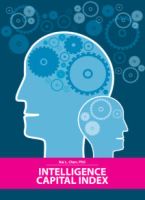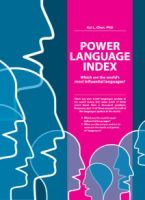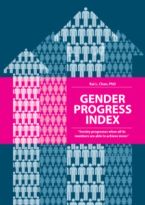
Forbes online article: “Big Data and the death of passion”
October 19, 2014
Big Data and the death of passion
By Shellie Karabell
We live in the “information age” – perhaps too much information – and the consultants are having a field day telling us how to handle it all.
“It may not be possible to overstate at this point how important Big Data analytics could be to the business world… what may look like a revolution is really an evolution,” writes David Meer, a New York-based retail sector partner at Strategy& (formerly Booz & Co, now part of PwC) in the company’s online magazine, Strategy & Business. He calls it “the next frontier of a trend toward greater data-driven decision-making that began with the adoption of mainframe computers for business use in the 1960s.” Those, you may remember, were the days of manual typewriters, mimeograph machines, and the Post Office.
Meer contends that companies which can use this data in their business decisions will “significantly outperform” their competitors and enter into a virtuous cycle of continuous improvement. The missing link between being snowed under by facts and figures and the optimum output is the “high-value business questions that new sources of data and more powerful analytics can help them solve.” In other words, we have the answers… now we need the questions.
Meer elaborates on his research and findings in his chapter for the World Economic Forum’s 2014 Global Information Technology Report (GITR), and proposes a four-step “Big Data maturity framework” to help companies formulate the high-value propositions or questions in order to take advantage of the promise Big Data brings:
1. Performance management – leveraging key performance indicators such as financial reporting, compliance monitoring, and performance measurement;
2. Functional area excellence – more efficient marketing and logistics;
3. Value proposition enhancement – personalized experience with which customers can positively identify, leading to retention and cross-selling;
4. Business Model Transformation – creating data-centric business models.
Point four may contain the answer to why businesses are not yet embracing Big Data as the basis for decision-making: leaders are not willing to give up their gut instincts and intuition. In the past, it was in vogue to disparage focus groups; today it’s Big Data.
BUT WAIT.
Other researchers postulate that “our economic system had been fuelled by ‘ignorance is bliss’ just as much as by information” since the dawn of capitalism and that there are significant downsides to fully incorporating Big Data into business decision-making.
Sami Mahroum and Kai Chan from INSEAD’s Innovation & Policy Initiative, in an interview for this blog, said that there is a lot of excitement about the prospects of so-called Data Driven Innovation, where Big Data will not only make our decisions but also drive our cars and fly our aeroplanes. The reality is more complicated than that. More information can actually negatively affect our economic lives.
To wit, the loss of tens of millions of jobs in the OECD region alone (i.e., most of the Western economies), citing the OECD’s own statistics which suggest increased efficiency and productivity growth resulting from employing Big Data of between 5% and 10%, resulting in up to 7-million possible new jobs… but – more significantly – a loss of 53.5 million current jobs. Those job losses, Mahroum points out, run across the employment spectrum, from the factory floor to white collar jobs such as sales and marketing. The cost of ameliorating that disruption would be significant to business as well as to taxpayers.
“Too much information will lead either to decision paralysis or to risk aversion,” says Mahroum. “Human beings cannot process so much information and they will eventually deploy bias in selecting the type of information they want to learn about… what we call ‘deliberate ignorance’.”
Mahroum contends that capitalism has been operating under a healthy level of ignorance since the beginning of modern economic theory. Adam Smith spoke of the “miracle of the ‘invisible hand’” – a metaphor for “hidden market dynamics that bring about a socially optimal outcome when self-interested agents (“businessmen”) in a market try to maximize their personal benefits.” Their corollary is Albert O. Hirschman’s “hiding hand principle” – the hidden troubles that lie ahead of the entrepreneur embarking on new or risky ventures, entailing significant costs before executing a U-turn and heading back to the beginning for a new go at the venture.
Chan concurs, noting that the 2001 Nobel Prize in Economics went to three American economists, including Columbia University’s Joseph Stiglitz, for their “analyses of markets with asymmetric information,” postulating that the value created in capitalist systems occurs under conditions that can be characterized as “giving the benefit of the doubt.” Princeton’s Chris Sims called the phenomenon “rational inattention” – selective inclusion and rejection of information in decision-making – and not to be confused with sheer laziness.
“The Hidden Hand and blissful ignorance lead many entrepreneurs and people in general to embark on all sorts of journeys where we fail and we win but ultimately we learn and accumulate lots of knowledge in the process,” says Mahroum. In other words, to paraphrase an age-old adage, if you look, you might never leap.
In providing too much information, could Big Data be heralding the death of “strategic risk?” What happens to the concept of learning from your mistakes? Or to the kind of entrepreneurial passion that propelled Steve Jobs to go ahead with the iPhone because he believed he could and should create blockbuster products people didn’t yet know they wanted? What happens to progress and human development and the passion which is ultimately at the core of any successful venture, when the answers are all there, up front?
Coming up with the right value-proposition questions to rationalize the information contained within Big Data – as Strategy&’s Meer suggests – is probably key to capitalizing on this new phenomenon, and the kind of work involved in working backwards from the answers will take some time and a lot of corporate soul-searching. Mahroum cautions, “We don’t expect Big Data to reveal everything, but we are arguing that there is a strong element of exuberance about it that can lead some leaders in business to delay decisions or make the wrong ones.”
Then there’s the sports theory of the “intangibles” – that unquantifiable force you won’t find in the play sheets or statistics – call it passion or the desire to win – which can shift the whole match.
Who would have signed the Declaration of Independence knowing fully what struggles lay ahead?
Copyright © 2014 Forbes.com LLC™. All Rights Reserved.
Original article: http://www.forbes.com/sites/shelliekarabell/2014/10/19/big-data-and-the-death-of-passion/






